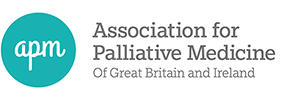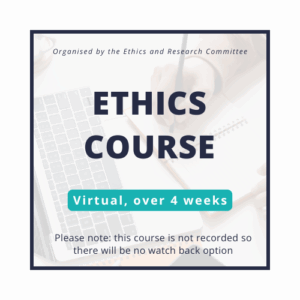PAYMENTS AND CONFIRMATION OF BOOKING
Palliative Care Congress Bookings
All bookings are to be processed online. Payment of registration fees must be made at the time of booking. Payments can be made by debit or credit card and will be taken via Stripe.
All APM events are charged in pounds sterling and all payments must be received in pounds sterling.
Confirmation of a place at Congress will be sent to the email address provided at the time of booking, once payment has been received in full. To be clear, payment in full must be received before Congress takes place and any delegate whose payment has not been settled prior to the event will be refused entry.
It is the responsibility of the delegate to ensure the appropriate registration fee is paid. For clarity, the delegate must pay the fee applicable at the time Congress takes place and not the time the booking is made.
APM Study Days and Workshops | In-person and Virtual
All bookings are to be processed online. Payment of registration fees must be made at the time of booking. Payments can be made by debit or credit card and will be taken via Stripe.
All APM events are charged in pounds sterling and all payments must be received in pounds sterling.
Confirmation of a place at the event will be sent to the email address provided at the time of booking, once payment has been received in full. To be clear, payment in full must be received before the event takes place. Any delegate whose payment has not been settled prior to the event will be refused entry.
It is the responsibility of the delegate to ensure the appropriate registration fee rate is paid. For clarity, the delegate must pay the fee applicable at the time the event takes place and not the time the booking is made.
Early Bird Registration Fees
Early bird registration fees must be paid online by the close of the early bird at the latest.
Standard Registration Fees
Standard registration fees must be paid before the first day of the event. If payment has not been received before the event takes place, the delegate will be refused entry to the event.
CANCELLATIONS AND CHANGES TO BOOKINGS
Cancellations by Registrants
Notice of cancellation must be received in writing and emailed to bookings@munrosmith.co.uk
If the notice of cancellation is received no later than 56 days before the first day of the event, and you request us to do so in the notice of cancellation, we will refund 75% of the registration fee paid. We regret no refunds can be made in any circumstances after this date.
If you do not attend the event, the full fee remains payable, and no refund will be given. For virtual events, any recordings will be available to those unable to attend, excepting the Ethics course which is not recorded.
Cancellation of the event by the Association for Palliative Medicine (APM)
The event may be cancelled by the APM at any time and at its sole discretion. In such circumstances, the APM will refund each registrant 100% of the delegate fee paid. However, in any situation where the event is cancelled by the APM, the APM is not liable for any other loss or damage incurred by the registrant.
Transfer of Bookings
The APM is happy to transfer a confirmed booking to another delegate at any time up to 2 weeks before the first day of the event, on the condition that written notification of the substitution has been received by bookings@munrosmith.co.uk. Transfers are possible after this time, however, delegate listings and name badges may not be updated.
A request for transfer must include the following details: full name of transferee (including title), job title, place of work, mobile phone number, email and, in the case of in-person events, any special dietary or access requirements.
The APM will not resend the transferee any event information or materials already dispatched to the original registrant. It is the responsibility of the original registrant to provide this information.
Transfers of bookings at the event will normally only be permitted if the proposed transferee produces written confirmation of the requested transfer from the original registrant and such transfers are at the sole discretion of the APM on the day.
PROGRAMME CHANGES
The APM reserves the right to make changes to event Programmes, locations and/or speakers without prior notice and at its sole discretion.
FILMING AND PHOTOGRAPHY
Please note in-person APM events may be photographed and/or filmed and virtual events may be recorded. Acceptance of these terms and conditions is deemed to include your agreement to being photographed/filmed/recorded during the event and to the use of resulting images by the APM for promotional purposes.
GENERAL
You must comply with any direction or requirement of the APM, and of the owners or managers of the event venue(s) and with any statutory regulations applicable to the event or the venue(s).
HOW THE APM USES YOUR PERSONAL DATA
The APM may choose to contact you from time to time, in accordance with their Privacy Policy.







